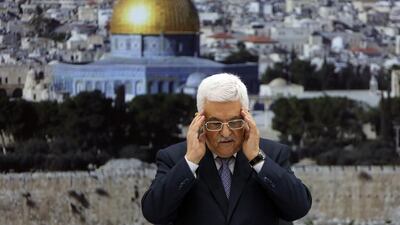When Mahmoud Abbas announced the ceasefire ending 50 days of conflict in Gaza, the Palestinian president also asked a question undoubtedly on the lips of those whose lives have been decimated by the fighting: “What next?”
The conditions agreed between Israel and the Palestinians in Cairo on Tuesday night barely differ from the deal that ended a similar war in 2012. With more than 2,000 Palestinians killed in Gaza, it is unclear what their sacrifice actually achieved.
The only Palestinian gains in Cairo are a minuscule extension of fishing rights for Gaza’s fishermen and the opening of the border crossing to Egypt at Rafah. The big questions, including the opening of an airport and seaport and the lifting of the Israeli siege, have been pushed forward for future talks — if and when these ever materialise.
There is, however, one major difference between the 2012 truce and the one signed this week — the Palestinian Authority is expected to oversee Gaza’s border crossings and lead the coordination of the territory’s reconstruction.
The Islamist group Hamas has controlled Gaza since seizing the territory from Fatah, the Palestinian faction that leads the PA, after winning parliamentary elections that led to violent clashes in 2007.
But weakened by years of the Israel blockade and the demise of its Islamist allies in the region, Hamas in April accepted a reconciliation deal with Fatah, headed by Mr Abbas. The pact aimed to present a more united Palestinian front to end Israeli occupation of Palestinian territories.
In his televised address, the unity deal was clearly at the forefront of the Palestinian president’s mind.
He said a major achievement of the talks to end the Gaza conflict was that it allowed the reconciliation process between Hamas and Fatah to continue.
Mr Abbas and the PA have taken an active role in almost every stage of the negotiations with Israel to end the fighting. The fact that the unity deal between the Palestinian factions seems to have weathered the war is testament to its importance to both sides.
Going forward that will only increase. Hamas is still faced with many of the same issues coming out of the war with Israel as it did going in.
It is still unable to pay civil servants without the help of the PA, coupled with the fact that it has a reconstruction mission in Gaza that could take more than a decade. Thousands have lost their homes to Israeli bombing, and the euphoria that greeted the ceasefire deal this week is sure to wane as Gazans start asking how and when they are going to be able to return to normal life.
On the part of the PA, the war has galvanised support for Hamas in the West Bank, as evidenced by an increase in pro-Hamas rallies and antipathy towards Mr Abbas and Fatah. Many see the Palestinian president as weak in his acquiescence to Israel while the Islamist party took the fight to the occupiers’ doors. The PA will no doubt prefer to keep Hamas where they currently are, inside the tent: friends, rather than enemies.
All will depend, of course, on the woolly commitment by Israel to discuss Hamas’ bigger demands over the conflict — namely an airport, seaport and a lifting of the seven-year siege — in a month’s time, and the ability of the PA to deliver them.
With Mr Abbas and the PA on board, change in Gaza looks far more likely, but the stakes are also a lot higher.
The Palestinian factions can no longer blame each other if the situation does not improve; Hamas, Fatah and the PA all now have their credibility on the line.
foreign.desk@thenational.ae

